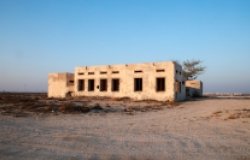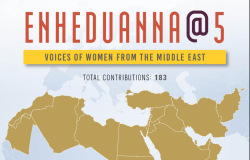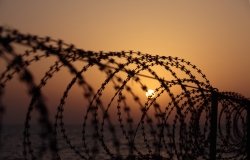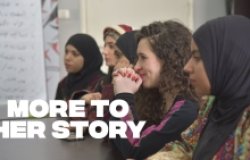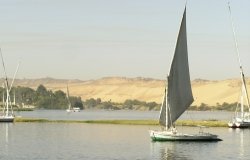
A blog of the Middle East Women's Initiative
Women Sent a Message of Democratic Resilience in Turkey’s Municipal Elections
Barçin Yinanç reviews the results from Turkey's 2024 municipal elections, arguing that the opposition's stunning victory and the number of women elected mayors are evidence of democratic resilience in the country.

Yet, I did not believe that a majority Muslim country in the Middle East could not reverse its trajectory. And women, who tripled their representation in the country’s mayoral seats, shattered the myth of AKP dominance.
Last year, I was trying to convince some of my Western interlocutors—be they observers, colleagues, or friends—that despite the slide towards authoritarianism under two decades of Justice and Development Party (AKP) rule, Turkish society still harbors democratic resilience.
During last May’s presidential and general elections, outside observers were wary of an opposition victory, arguing that an authoritarian and Islamist leader like Reçep Tayyip Erdoğan would never leave power. As Erdoğan won the presidential elections, and the opposition bloc failed to secure a majority in the parliament, they must have felt vindicated.
The 2023 elections were free but unfair. Turkey’s political playing field is massively tilted in favor of Erdoğan and his party; the state lavishes funds on his supporters and the media is under government control. Ultimately, the opposition’s own missteps ushered in Erdoğan’s 2023 victory.
Yet, I did not believe that a majority Muslim country in the Middle East could not reverse its trajectory. And women, who tripled their representation in the country’s mayoral seats, shattered the myth of AKP dominance.
A stunning opposition victory
After only ten months, although the playing field remains unequal, the opposition gained a stunning victory in local elections. The March 31 municipal elections marked a historic success for the center left. The secular Republican People’s Party (CHP), emerged as the leading party for the first time since 1977. The CHP won 36 of 81 municipalities—a vexing setback to the AKP and Erdoğan.
The elections were historic as they dispelled the notion that a liberal, secular party would not win in rural, conservative areas. In addition to the three largest metropolitan centers of İstanbul, Ankara, and İzmir, the CHP won the mayoralties of major cities in conservative Anatolia—some for the first time since multiparty elections were held in 1950.
The change in heart even in traditional AKP strongholds can be attributed to Turkey’s ongoing economic crisis, as well as changes in opposition leadership. The AKP’s flawed economic policies of the past decade put the economy in with galloping inflation, which hit almost 70% year-on-year in March 2024.
Additionally, the CHP has changed its leadership after their defeat in the 2023 elections. Under a younger and more dynamic leadership, the CHP avoided past mistakes and pursued a much better electoral campaign. Disenchanted AKP voters either avoided the ballot box or voted for the opposition, signaling to the government that they did not lack alternatives.
Women elected in AKP strongholds
The election results dealt a serious blow to the conviction that women candidates would not be elected in conservative areas and in a patriarchal country like Turkey. “The myths suggesting that women cannot win elections and that voters do not vote for women have been debunked,” read a statement from the Platform for Equality of Women.
As a result of the municipal elections, the number of female mayors nearly tripled to 11 of the 81 provinces. Of those, one is from the governing AKP while the remaining are from the CHP and pro-Kurdish DEM Party. The DEM managed to elect female mayors in Ağrı, Siirt, and Diyarbakır, all conservative cities in East and Southeast Anatolia.
For instance, Gülistan Sönük from DEM Party won 64.5% of the vote in the deeply pious city of Batman, against a candidate from Kurdish-ultra-Islamist, Hüda-Par, who is an Erdoğan government ally in the nation's parliament. "Hüda-Par did not see me as a competitor because I was a woman," Sönük toldReuters. "The last thing they wanted was to lose to a young woman. That makes me incredibly proud."
Moreover, many initially questioned the CHP’s choice of Sinem Dedetaş as the candidate for the historically conservative İstanbul neighborhood of Üsküdar, claiming a woman would fail to lure conservative voters. Yet, the marine engineer won the race by 7% ahead of her AKP rival—a symbolic blow to Erdoğan, whose family residence is in Üsküdar.
Like Dedetaş, some of the women made history as they became the first female mayors of cities or districts in which they ran. In Afyonkarahisar, Burcu Köksal delivered the city’s top seat to the CHP for the first time in the republic’s history.
While meritocracy played a central role in the specific choices for female candidates, opposition parties did not hesitate this time to nominate young names with less experience. Some of the first-time mayors had already served in municipalities or in the national parliament while others came from civil society organizations.
Women in the democratic fight
After the country switched from a parliamentary to a presidential system, Erdoğan needed 51% of the votes to get elected and started luring ultra-Islamist and ultra-conservative parties by compromising women's rights. The regression in women’s rights and gender equality have grown, culminating in the withdrawal of Turkey from the İstanbul Convention, international treaty against domestic violence (for which the AKP had played a major role in preparation during the 2000s).
As a result of Erdoğan’s authoritarian turn and the erosion of women’s rights, women started to take the front lines resisting democratic backsliding.
For instance, women in small villages became activists against environmentally detrimental projects planned by the government. Nejla Işık, a woman from İkizdere, a small village in the Aegean region was one of the iconic figures of the campaign to stop the destruction of a local forest for the construction of a coal plant. While she has been subjected to intense pressure during her five-year campaign, which failed to bring the desired outcome, she nevertheless was elected the muhtar, or village ruler, in İkizdere on March 31.
“Conservative values and the masculine nature of politics can present significant barriers to women's representation in Turkey, even more so at the local level,” said Professor Evren Balta, the International Relations Department Chair at Özyeğin University. “Winning elections in conservative areas can be seen as a major success for women in such contexts. Furthermore, particularly in majoritarian elections where the race is about one seat, it is usually men who get that one seat as opposed to parliamentary elections where there is proportional representation,” he added.
"The election took place between two sharp lines. One was the mentality that saw women as second-class, and the other defended women's freedom. The public chose the latter," said Sönük in her interview with Reuters.
This year’s elections were a democratic triumph, according to Ekrem İmamoğlu, who won İstanbul’s elections for the second time, and are especially significant for Turkey’s neighboring region. İmamoğlu, who played a critical role in the nomination of women candidates in İstanbul, said during his victory speech that Turkish voters became an example for Muslim peoples yearning for freedom and equality and deserving to live in democratic regimes.
The views expressed in this piece are those of the author and do not express the official position of the Wilson Center.
About the Author


Middle East Program
The Wilson Center’s Middle East Program serves as a crucial resource for the policymaking community and beyond, providing analyses and research that helps inform US foreign policymaking, stimulates public debate, and expands knowledge about issues in the wider Middle East and North Africa (MENA) region. Read more

Middle East Women's Initiative
The Middle East Women's Initiative (MEWI) promotes the empowerment of women in the region through an open and inclusive dialogue with women leaders from the Middle East and continuous research. Read more
